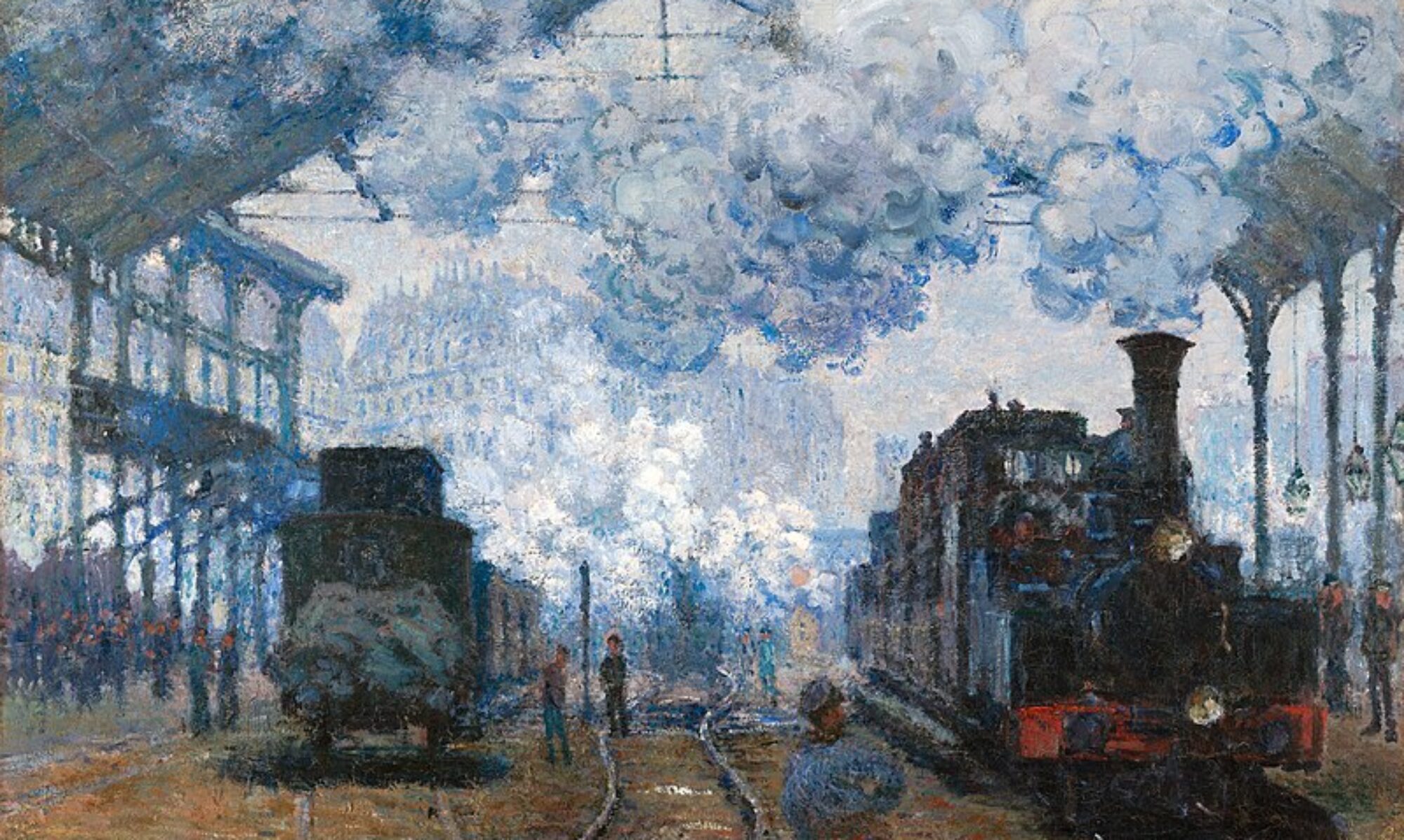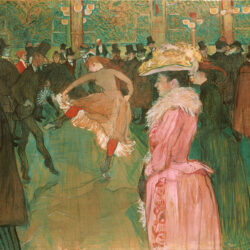Schoenberg’s Five Pieces is a unique work that appears very busy, particularly in the first movement. Like many canvas art pieces in the 20 years prior to its creation, the Five Pieces for Orchestra is packed with so many incidental parts that even after several playthroughs it is hard to distinguish every one. The first movement starts out soft, but after less than a minute horns playing flat notes create a sense of alarm, soon to be joined by blaring clarinets and flutes. For a brief moment it seems reminiscent of a John Williams score from actions sequences we would see in films like Indiana Jones, including the plucking of strings and high woodwind notes which stand out in some of the incidental parts of his film scores. However, where Williams’ scores reflect action sequences, tension, dread and excitement, this score is slightly more vague. It moves so quickly to the next style and incidental part that it is hard to distinguish any pattern to the piece, which I believe is intentional.
Music tends to reflect the periods events, and at this time (1909), much was occurring in the world. Just 6 years prior the first powered aircraft flew for the first time, and the continuation of the industrial revolution created the opportunity for many more technological innovations. In transportation, larger railroad locomotives and ocean liners (Construction had already begun on the RMS Olympic, the Titanic’s predecessor, and it would be completed just two years after this piece was written), the mass production of automobiles had recently begun, and the world as a whole was becoming more connected as roads, the oceans, and skies became more packed with the newest innovations. It is this hectic new world that is conveyed through the first movement of this piece. Perhaps Schoenberg’s brief introduction with a soft tone is a way of romanticizing a world before the most recent, noisy, modern advances. Its influence can be seen in The Planets by Gustav Holst, who composed a movement meant to reflect war in Mars. With countries beginning to gear up for war in the form of various arms races across Europe, it could also be argued that both this bombastic section of Schoenberg’s piece and Holst’s work is a commentary on the more hostile world that has resulted from rapid technological advancement. The conclusion of low notes by woodwinds after the loud, brass-heavy portion still conveys this ominous tone but in a more veiled fashion, which is thought provoking and leads one to ask the following questions:
What could this more quiet section represent or convey in the context of the era?
To what extent can this piece, particularly its beginning, be traced to events of the period?
While symbolic, music, can also be directly influenced by current events of the time, so what specific events in Europe might have contributed to this piece’s fashion?

